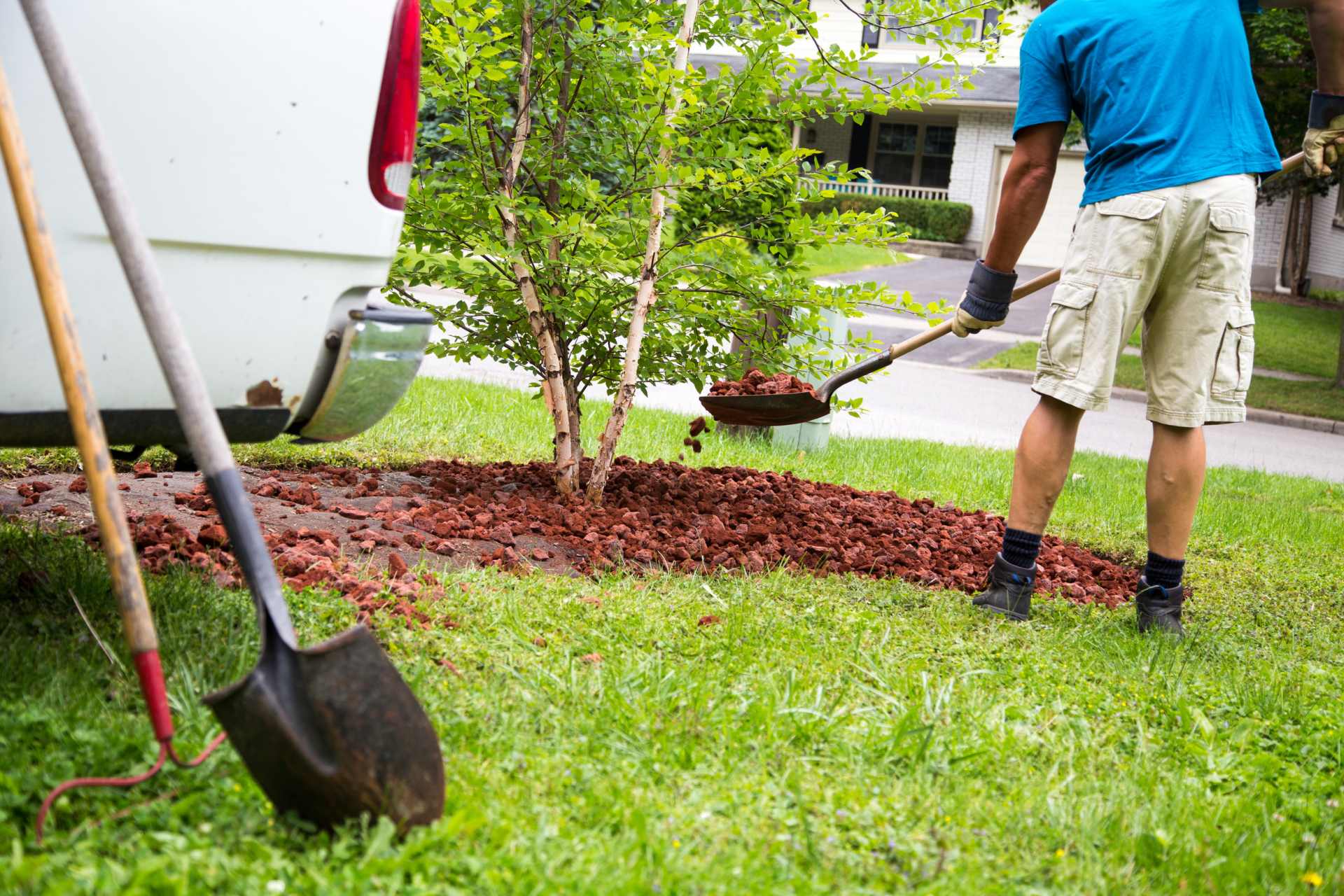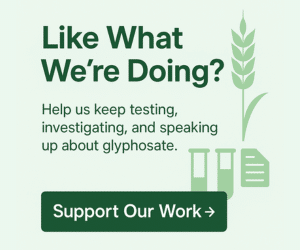Updated November 2025 to include new NZ glyphosate-free weedkiller reviews.
Most home gardeners reach for glyphosate because it’s familiar, fast, and everywhere.
It can be found on hardware shelves, garden centres, supermarket aisles, and even in “convenient” ready-to-spray bottles near the checkout.
But with growing concerns about health impacts, soil damage, and environmental contamination, more gardeners are asking a simple question:
Is glyphosate really the only practical option — or just the most promoted one?
Let’s take a look at what safer weed control can actually look like in a typical Kiwi garden.
Why Move Away From Glyphosate-Based Weedkillers?
Why Move Away from Glyphosate?
Glyphosate’s reputation has changed dramatically over the past decade.
We now know:
- It disrupts gut microbes (in both humans and animals).
- IARC classified it as “probably carcinogenic to humans.”
- Studies show endocrine disruption, immune disruption, and possible reproductive effects.
- It harms beneficial soil organisms, affecting long-term soil health.
- It can move through runoff into waterways and sediment.
So the question becomes:
Have we normalised a chemical that was never truly “safe” to begin with — simply because it was convenient?
For many home gardeners, the answer is increasingly “yes.”
Natural Weed Control: Tried-and-Tested Non-Chemical Methods
If you’d prefer to reduce your spraying footprint altogether, there are several methods that work incredibly well — while actually improving the resilience of your garden.
Manual Removal
The oldest method still works. Pulling weeds by hand or using a hoe is effective for small to medium gardens and helps you stay connected to your soil rather than disconnected behind a spray nozzle.
Mulching
A thick layer of organic mulch (straw, bark chips, leaves, compost) blocks sunlight and stops weeds germinating. It also feeds the soil food web — something glyphosate does the opposite of.
Boiling Water
A kettle of boiling water poured onto weeds in cracks, driveways, or edging strips kills them instantly. No residue. No harm to soil organisms.
Flame Weeding
A controlled quick pass of heat destroys annual weeds. This method is popular in organic farming and works best on young, soft growth.
Cover Cropping
Plants like clover, buckwheat, or rye smother weeds while restoring soil structure. This is one of the most underused but powerful alternatives to chemical weed control.
Sometimes the old methods work not just “well enough,” but better — and without leaving a chemical signature behind.
Safer Herbicide Alternatives to Glyphosate
Some home gardeners still prefer a spray-style option — just not one involving glyphosate. Fortunately, there are several natural or low-toxicity sprays available.
Vinegar-Based Sprays
High-strength acetic acid desiccates weeds fast. It works best on young or soft weeds and won’t linger in the soil. The common DIY recipe includes dish soap for spreading, but salt should be used cautiously (or avoided) because it can build up and damage soil structure.
Citrus Oils, Clove Oil & Plant-Based Blends
These break down plant cell membranes and work well on fresh, green weeds. They’re not systemic and don’t persist in soil — a major advantage over glyphosate.
Glyphosate-Free Weedkillers Available in New Zealand
When this article was first published, we had reviewed only one product. Today, we have a growing list of independently written reviews of glyphosate-free options that Kiwi gardeners can actually buy.
Here’s a quick overview — with links for those who want deeper analysis:
Contact Organics Weed Terminator®
A natural acetic-acid-and-plant-oil blend that works rapidly on broadleaf weeds and grasses. No glyphosate, no synthetic residues.
https://nomoreglyphosate.nz/contact-organics-glyphosate-free-weedkiller/
WeedX® Glyphosate-Free Weedkiller
Well-known in New Zealand hardware stores, now reformulated without glyphosate.
https://nomoreglyphosate.nz/weedx-glyphosate-free-weedkiller/
Weed Blast Green Kiwi®
A citrus-based option many gardeners prefer for paths and edges.
https://nomoreglyphosate.nz/weed-blast-green-kiwi-review/
Slasher® Organic Weedkiller
Made from nonanoic acid (a fatty acid). Fast-acting, widely available.
https://nomoreglyphosate.nz/slasher-organic-weedkiller-glyphosate-free/
These products don’t pretend to be magic solutions. They work differently from glyphosate, often requiring better timing, more targeted spraying, or repeat applications. But they avoid the long-term soil and health risks associated with synthetic herbicides — and that’s the point.
Quick Comparison: NZ Glyphosate-Free Weedkillers
| Product | Active Ingredient | Works On | Speed | Child/Pet Safe? |
|---|---|---|---|---|
| Contact Organics | Acetic acid + plant oils | Broadleaf & grasses | Fast | Yes |
| WeedX | Plant-based surfactants | Annual weeds | Medium | Yes |
| Weed Blast Green Kiwi | Citrus/clove oils | Soft/green weeds | Fast | Yes |
| Slasher | Nonanoic acid | Broadleaf | Fast | Yes (when dry) |
This table helps address one of the biggest barriers people have when moving away from glyphosate:
“But what should I buy instead?”
Now they can see the options at a glance.
Combining Weed Control Methods for Better, Glyphosate-Free Results
No single method — natural or chemical — will solve every weed problem.
But combining strategies makes weed management far more successful:
- Mulch garden beds
- Hand-weed where practical
- Use cover crops to prevent weed take-over
- Apply natural sprays for spot treatment
- Time your weed control for early growth stages
This is how organic growers keep weeds under control without relying on the “spray and walk away” mindset that glyphosate encourages.
A More Mindful, Glyphosate-Free Way Forward
What if home gardeners led the shift away from glyphosate?
What if we stopped assuming the most convenient option is the safest?
What if weed control could actually improve the health of our soil and ecosystems rather than slowly degrading them?
There are now more glyphosate-free options available than ever — and as we test and review more New Zealand products, we’ll keep updating this guide so gardeners can make informed, safe choices.
If you want to explore each option in more depth, you can find all our weedkiller reviews here:
Contact Organics
WeedX
Weed Blast Green Kiwi
Slasher Organic Weedkiller
Each product works differently, and each one plays a role in a healthier, chemical-conscious approach to gardening.
Further Reading:
This section is a starting point for further exploration into safe and sustainable weed control methods. The books listed here provide valuable insights into both traditional and modern practices that prioritize human health and environmental well-being.
The following books are linked to Amazon.com for your convenience. If you decide to purchase through these links, we may earn a small commission — at no extra cost to you.
The Regenerative Grower’s Guide to Garden Amendments [amazon.com]
By Nigel Palmer
A practical guide to creating natural amendments and pest management solutions without synthetic chemicals.
Teaming with Microbes: The Organic Gardener’s Guide to the Soil Food Web [amazon.com]
By Jeff Lowenfels and Wayne Lewis: An in-depth look at soil health and microbial life as a natural weed suppressant.
Gaia’s Garden: A Guide to Home-Scale Permaculture [amazon.com]
By Toby Hemenway
Practical advice on permaculture techniques that naturally minimize weed growth.
The New Organic Grower: A Master’s Manual of Tools and Techniques for the Home and Market Gardener [amazon.com]
By Eliot Coleman
A classic in organic gardening that promotes chemical-free techniques.
Image Source & Attribution
We’re grateful to the talented photographers and designers whose work enhances our content. The feature image on this page is by dansamy. You can find more of Stewart’s work here: https://www.123rf.com/profile_dansamy.




